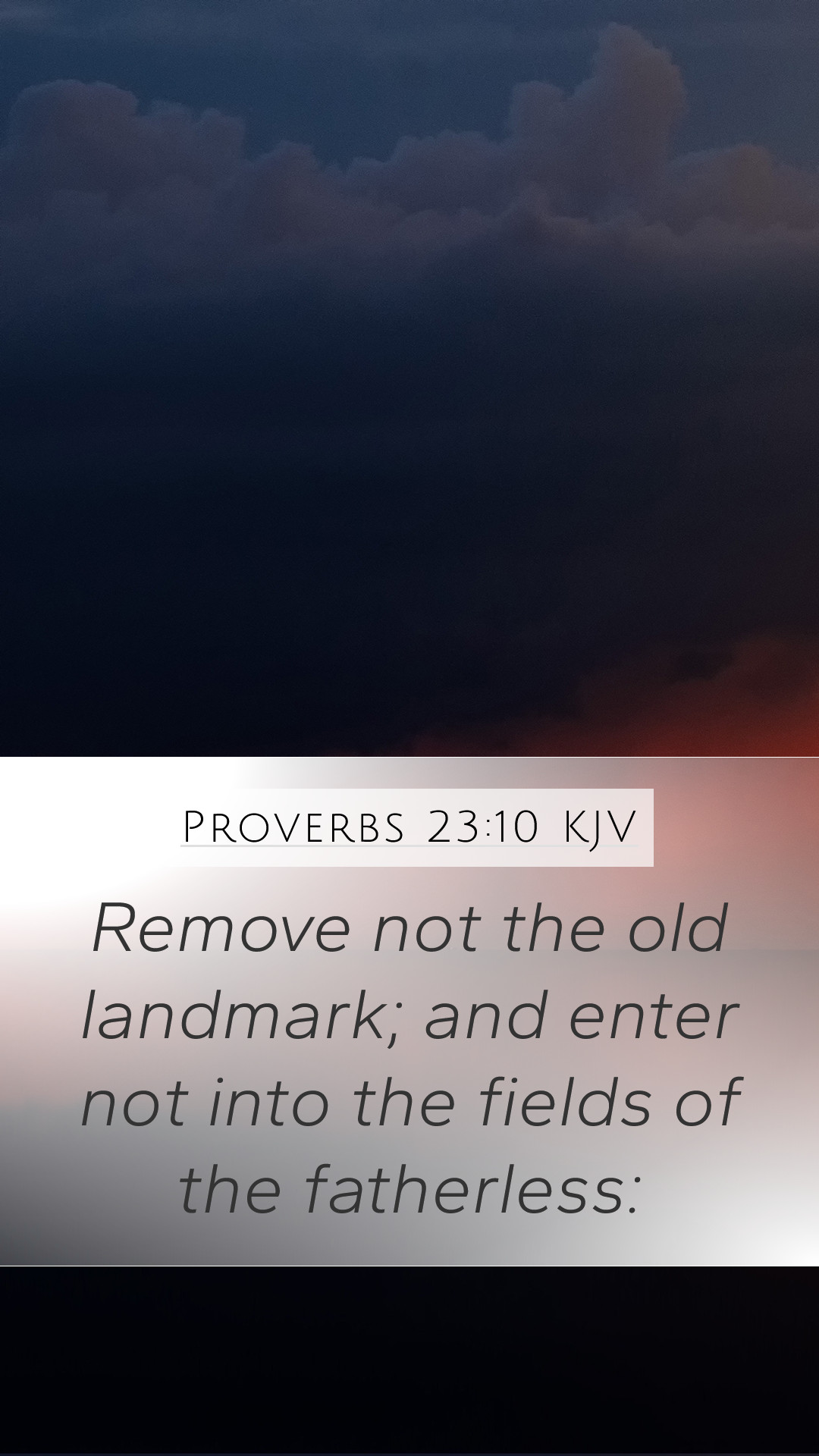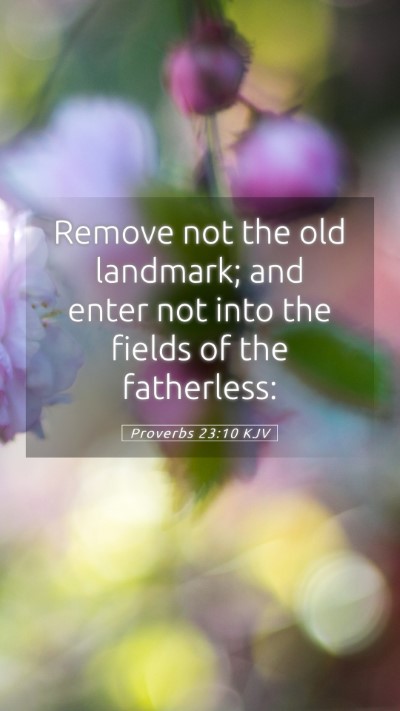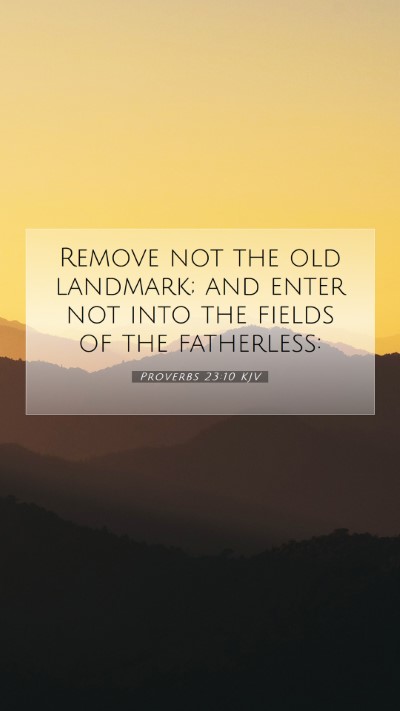Understanding Proverbs 23:10
Proverbs 23:10 states, "Remove not the old landmark; and enter not into the fields of the fatherless." This verse serves as a significant reminder about the importance of maintaining boundaries and respecting the rights and properties of others, particularly in relation to heritage and familial responsibilities.
Bible Verse Meanings
According to various public domain commentaries, this verse conveys two primary admonitions:
- Preserving Landmarks: The 'old landmark' refers to the physical boundaries that delineate property. In ancient Israel, these markers held immense significance for family inheritances and the land granted to tribes. Removing landmarks symbolizes dishonesty and a disregard for rightful ownership.
- Protecting the Vulnerable: The admonition to "enter not into the fields of the fatherless" highlights the vulnerability of orphans and calls for a protective stance against exploiting those who cannot defend themselves.
Bible Verse Interpretations
This verse has been illuminated by interpreters like Albert Barnes, who underscores the moral implications of property rights and justice. He notes that the preservation of boundaries ensures fairness in society, while Adam Clarke provides insight into the spiritual dimensions, emphasizing that integrity and respect for others’ rights are essential virtues in the sight of God.
Bible Study Insights
Matthew Henry elaborates on the broader application of this verse within community ethics. He points out that removing landmarks signals a deeper societal decay, where individuals prioritize self-interest over collective harmony. This moral decay erodes trust and social fabric.
In-Depth Bible Verse Analysis
Understanding Proverbs 23:10 is critical for Bible study groups seeking to explore themes of justice, integrity, and social responsibility. It invites deeper reflection on how these principles connect to managing relationships and land ownership. Here are essential points for effective Bible study:
- Historical Context: Engage with the historical practices surrounding land ownership in ancient Israel, where landmarks were vital for maintaining familial rights.
- Application to Daily Life: Discuss how the modern interpretation of 'landmarks' can relate to personal boundaries in relationships and ethical business practices.
- Cross-Referencing: Consider how this verse connects to others such as:
- Proverbs 22:28 - "Remove not the ancient landmark, which thy fathers have set."
- Deuteronomy 19:14 - "Thou shalt not remove thy neighbor's landmark, which they of old time have set."
- Job 31:38-40 - "If my land cry against me..." highlighting the rights of property.
Biblical Exegesis
Proverbs 23:10 provides ample ground for scholarly exploration, particularly in biblical exegesis, where the intent of the author and the core message can be discerned. Recognizing the historical and cultural context enriches understanding and allows for meaningful discussions in Bible study sessions.
Application for Bible Study Courses
This verse can serve as a focal point in various Bible study courses designed to teach about ethics, social justice, and personal conduct. Pastoral lessons can borrow from its insights to emphasize care for the marginalized.
Conclusion
In summary, Proverbs 23:10 encapsulates essential lessons about integrity, respect for others, and societal obligations. It invites readers to reflect on their own practices regarding boundaries and how they treat the vulnerable within their communities. Through a careful study of this verse, individuals can gain profound insights that apply across generations.


